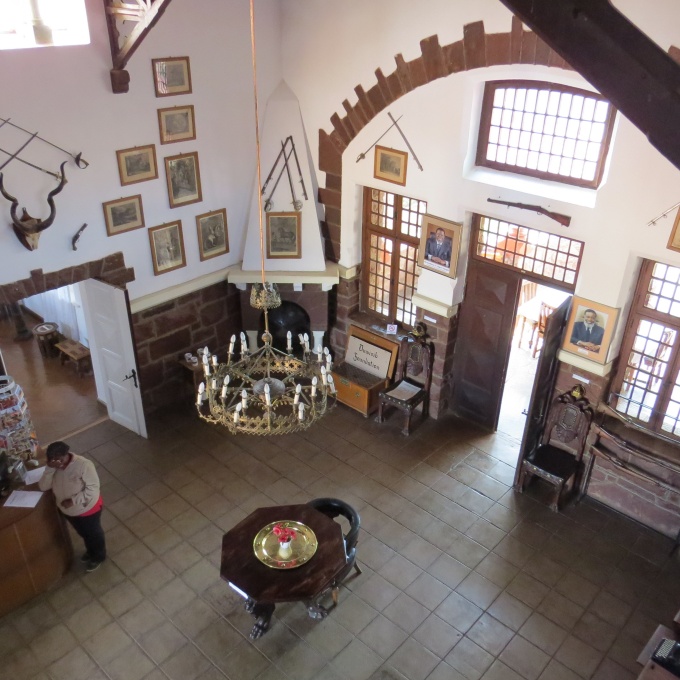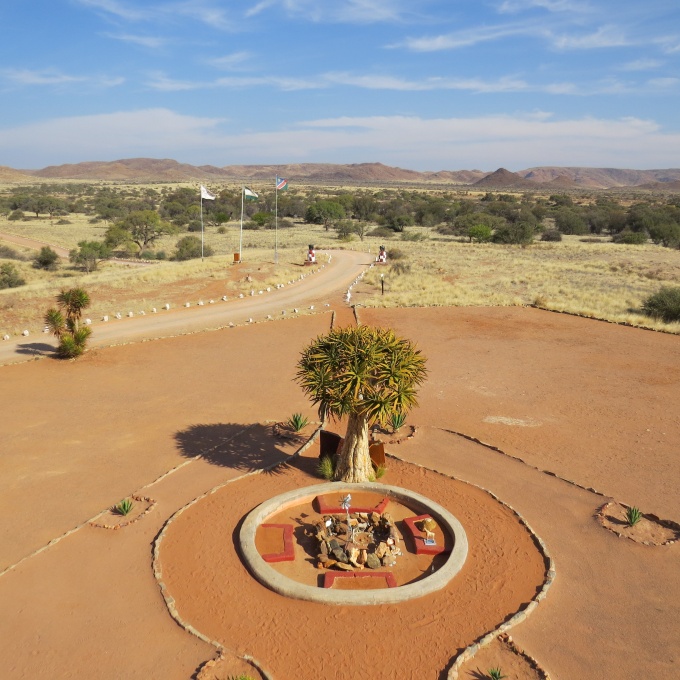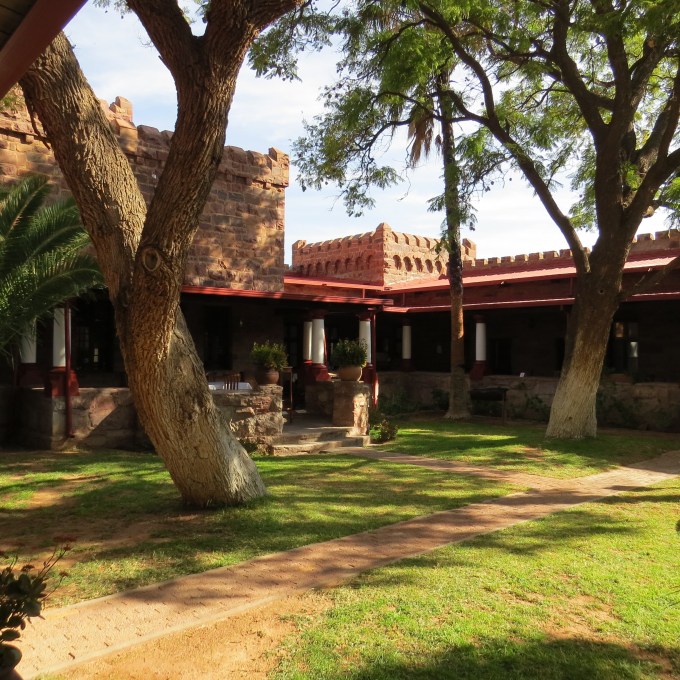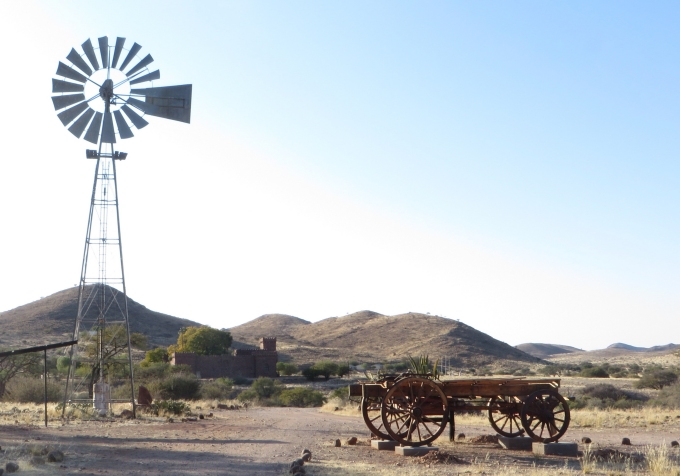One thing you don't expect to see when you're driving along dusty, bumpy gravel roads in the Namib Desert is a castle. When we read about Duwisib Castle, we thought it was probably just a big house that the locals referred to as a castle. Au contraire … this is a fine, 22-room castle in the middle of nowhere, now owned and operated by NWR (Namibia Wildlife Resort) and we stopped for a visit.

Duwisib is actually a Nama word and pronounced (click)dwee-sib and it means black sheep, referring to the unusual black sheep raised on this farm and subsequently the distinctive way that the Nama referred to Baron Hansheinrich von Wolf, the castle's owner. Designed by Wilhelm Sander, the same architect who designed the three castles in Windhoek (castles were his forte, it seems), the castle was built between 1908-1909. Von Wolf's wife, Jayta (Humphrey) von Wolf, an American heiress, wanted to live in a castle and, using her money, her willing husband complied with her wishes. Why they chose such an isolated spot in the Namib Desert eludes us.

Local Herero people quarried the the red sandstone on site, while Italian stonemasons and German carpenters were imported for the finish stonework and woodwork. Other than the sandstone, most of the building materials were imported from Europe, transported by ship to Lüderitzbucht and then by ox cart via a 14 day trek to the castle site. The interior was quite grand. We climbed the steep narrow stairs to the gallery and the gentlemen's “rooms” on the second floor for a view of the great hall below.

From the turret, we had a scenic vista with an iconic quiver tree in the foreground and an expanse of desert that stretched to the mountains beyond.

The von Wolfs lived in the castle for only five years. With the help of an extensive staff, they farmed and raised cattle and thoroughbred horses from Australian and British stock. In 1914, they left for England to buy more horses, leaving the care of the castle in the hands of the staff. While at sea, WWI broke out. After a short internment in Brazil, they finally found passage back to Europe where von Wolf joined the German forces and within 14 days was killed in the Battle of Somme in France. Jayta remained in Europe for a time and remarried and finally returned to Summit, New Jersey, her original home, where she died in 1946. She never returned to Duwisib nor did she ever lay claim to the property. Remember those wild horses in Aus that we visited a few weeks ago? It is thought that they are direct descendants of von Wolf's abandoned stock.

As we wandered through the castle, our guide and hostess, Samantha, provided us with insight into the von Wolfs' daily lives, which despite of their isolation, was pretty grand. The von Wolfs appreciated fine European furniture and much of it was still in place.

When we ended our tour, we found ourselves in a pleasant courtyard and we had the chance to chat with Samantha for a bit.

We found out too late that we could have actually spent the night in the castle in a pretty classy room. The staff were anxious to have us stay, but alas, we had already booked a room at the neighboring Duwisib Guest Farm.

We were not disappointed in the guest farm, however. There, Elizabeth, greeted us, showed us to our cozy room and served us afternoon tea and coffee … quite civilized for the middle of nowhere, we thought.

Dinner that evening was a farm-type meal of roast chicken, potatoes and carrots. Other folks who stayed had oryx steak with bobotie, a South African dish.

Morning came none too soon. Our beds were uncomfortably hard as rocks and we rose with sore backs and hips. We could, however, see the castle from our window which was a plus.

Time was a'wasting. This was our final day and we needed to head back to Lüderitz, but we still had the day and we wanted to make the most of it. Ian had suggested driving the “dream road”. Route 707 is considered one of the most scenic drives in all Namibia and we heeded his advice.
But first, stay tuned tomorrow for some Lessons in Damara-Nama … a click language and we're told it's all in the tongue. The fine scenery will wait another day. And, yes, for you techies … there will definitely be a Blue View soon … as soon as I get the Captain back to his boat!














